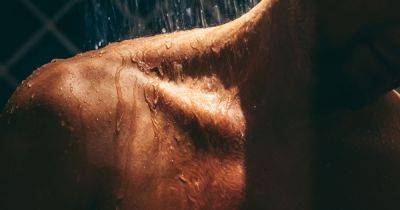Still Doing This Step When You're Washing Dishes? You Can Stop Immediately.
It’s a question as old as time itself: Do we need to pre-rinse our dishes before we put them in the dishwasher?
Surely many a marriage has ended because spouses have not been able to agree, so we — Raj Punjabi and Noah Michelson, the hosts of HuffPost’s “Am I Doing It Wrong?” podcast — decided to take it upon ourselves and finally get an answer.
Press play to listen to the full episode and hear all of the brilliant tips and tricks we learned to make dishwashing — both in a machine and by hand — easier and more effective:
“That’s the $64,000 question, for sure,” Carolyn Forté, executive director of the Good Housekeeping Institute’s Home Care and Cleaning Lab, told us. “If you’re running a load right away… there’s no need to pre-rinse.”
That’s because today’s dishwashers are so effective they don’t require us to do anything more than remove large chunks of food from our dishes before loading them.
“It’s not a garbage disposal, it’s a dishwasher, so you want to get excess food off, but you don’t need to pre-rinse,” she explained. “And keep in mind that the more you wipe off, the cleaner your filter and your dishwasher will stay.”
But we don’t want to remove everything, because having some debris actually helps our machines do their job.
“Most of today’s dishwasher detergents have enzymes in them, so the theory is that enzymes need to work on something in order to clean, which is true,” Forté said. “But dishwashers also have sensors in them that tell them how dirty the load is. It’s a turbidity sensor, and it measures the amount of soil that’s in the wash water. So if it senses a lot of soil, it’s going to add more water. It’s going to up the temperature. It’s going to make accommodations for that. If it senses less soil,







